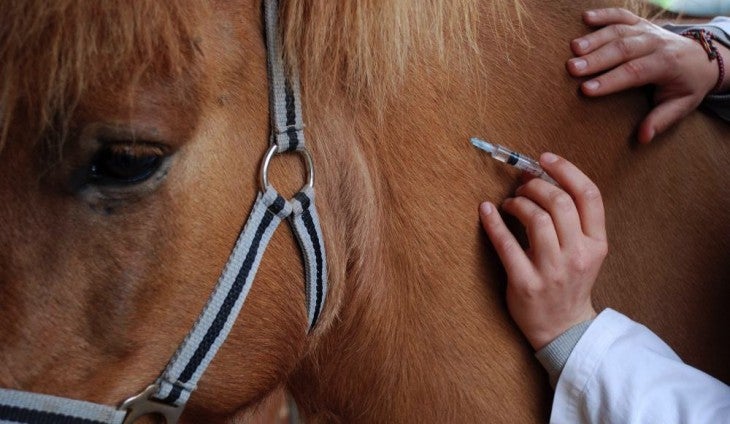Potomac horse fever is a disease best known for its gastrointestinal signs such as enteritis and diarrhea. This disease is caused by Neorickettsia risticii, an organism that lives inside several different cells of the equine body. This disease has been referred to in the past as equine monocytic ehrlichiosis, or equine ehrlichial colitis. Cases of the fever have a seasonal presentation with the highest number of cases with clinical signs in July, August, and September. It is found throughout in North America and has been reported in most regions of the United States and Canada.
Several studies have been conducted to determine the route of infection and have revealed that a parasite, living in freshwater snails and aquatic insects, is a reservoir for N. risticii. The parasites and N. risticii have been found in adult and immature forms of aquatic insects, such as caddisflies, mayflies, damselflies, dragonflies, and stoneflies. Therefore, the seasonality of PHF is likely related to the seasonality of the flying insect. These types of insects do not feed on warm blooded mammals; so, it is likely that an equid may ingest an aquatic insect or snail while grazing, or consume a flying insect that has landed in drinking water. It has also been suggested that the insects might be attracted to the barn area by outdoor lights during the night.
The typical clinical signs observed in horses with PHF include:
Several vaccines are commercially available in the United States, but their efficacy is questionable. Currently available vaccines on the market is Equine Potomavac.
The equine potomavac is a liquid suspension of inactivated N. risticii recommended for the vaccination of healthy horses as an aid in the prevention of Potomac Horse Fever. However, the drug of choice to treat N. risticii infection in horses is oxytetracycline. Oxytetracycline is able to interfere with the control mechanisms of N. risticii and allows the macrophage to eliminate the organism.
Until modes of transmission are clearly known, and all sources of the infection are identified, attempts to prevent exposure may not be successful. Although there is evidence that associates PHF with aquatic environments, horses have developed PHF without having access to such environments. Turning off lights at night in the stable and barn area will decrease the amount of insects attracted to the area and contamination of feed and water.





